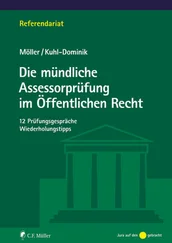“Yes,” Mr Doucette said, and immediately the other murmurings in the room hushed. “I have a question.” His voice still shook a little; slowly he reached up and knocked Gracey’s hand off his shoulder. “These … images, as you call them, they contain no picture or drawing of our product, no reference to our product. They don’t mention the name of our product. So my question is, what, other than the fact that I pay you for them, makes these things advertisements at all?”
Osbourne nodded approvingly. “That’s a very sophisticated question, sir,” he said. “And I could go on about how those sorts of categories no longer exist: how economic and technological history has bequeathed us this network for the distribution of visual messages, a network so self-sustaining and efficient and culturally vital that it’s frankly overwhelmed the whole idea of praising commodities that brought it into being in the first place. But I expect that’s not what you’re really asking. So all I can tell you is this. Your aim in launching an advertising campaign is to sell millions more pants, shirts, and sweaters. The campaign I’ve shown you today will result in the sale of millions more pants, shirts, and sweaters. I guarantee that. I guarantee it. If that’s all our two ideas have in common, then that’s all they need to have in common.”
Doucette nodded, drumming his fingers on his leg. It was clear from his demeanor under stress that he had not been born into the class he now exemplified. He leaned forward and put his forearms on the table.
“You think I’m an idiot,” he said quietly. “Don’t you?”
“No, sir. I don’t think that. And I understand your hesitation. The way I look at it, our relationship, yours and mine, is an ancient one. It’s at least as old as the Renaissance. I am coming to you, in effect, to ask you to be my patron. As my patron, what glory accrues from my work will both reflect on you and, in indirect but very real ways, reward you. And you, of course, have something that I need, in order to do the work that I want to do. Which is why I thought it necessary that you and I meet here today. In order to obtain the opportunity to educate the public, it’s first necessary to educate the patron.”
The meeting broke up quickly after that. The junior people on each side of the table stared dumbly at one another for a few seconds before the Doucettes abruptly left as a group; Gracey said only that he would be in touch very soon. Osbourne seemed tired but well pleased; earnestly, he thanked his own eight staffers for their support, and without waiting for any reply, he gathered up the four boards, folded the easels, and left.
On the train back to New York, the stunned silence held for the first few minutes, before people began arguing tentatively about the exact nature of what they had just seen.
“He had to know what he was doing,” Dale said. “I mean, he had to know that no client in the world would ever go for that. So why would he go all the way through with it?”
“As a joke,” Andrea said. “As a kind of parting fuck-you. I mean, including CLO in the review process was a joke anyway. Does an incumbent agency ever win out in a review? No. Never. So he was just being vindictive, trying to make a fool out of old man Doucette instead of performing for him.”
“I don’t know about that,” Mick said. “I just never got any kind of a sarcastic hit off his presentation today. Nobody’s that deadpan. I think he was serious. And what he said was actually kind of brilliant in its way, I mean deranged, but brilliant.”
“Or,” Andrea said, excitedly. “Or. I mean let’s remember that Osbourne doesn’t even come into the office anymore. Hasn’t produced an ad in years. He does no work at all, that I know about. And suddenly he decides to take over a major account pitch and then totally sabotages it?” She looked around the gently rocking compartment. “I think we just watched a guy self-destructing. Maybe he deludes himself that he’s some kind of ad visionary, maybe not, but in fact he’s just setting fire to himself, finishing up the ruin of what was once a really brilliant career.”
“Good,” Dale said. “That’s what I was waiting to hear. Okay, any other votes for the guy’s being clinically insane?”
There was a silence, in which John noticed Roman, across the aisle, studying him in discreet perplexity, as if to say, The others may have forgotten for a moment what happened in the minutes before the meeting, but I haven’t. John felt himself reddening and turned his head.
“I mean, the fucking Renaissance,” Dale said. “What’s up with that?”
John went straight home to Brooklyn from Penn Station. He called in sick the next day. Wednesday afternoon, a staff meeting was called, at which Canning announced that, by mutual agreement, the agency’s contractual relationship with Mal Osbourne had been terminated. Canning called the parting amicable, but he also apologized to the eight creatives whose hard work on the Doucette pitch had, he said, gone to waste. As for Doucette, they had signed that morning with Chiat/Day.
Osbourne’s office email account had of course been closed; but it was just as well that his next message to John, months later, came to his home, in the form of a cramped but curiously formal handwritten note. “I am in the process of conceiving an exciting new venture,” it read. “I’ll be in touch with you about it in due course. In the meantime, I sincerely hope that you and your wife are well.”
FIRST PERIOD MATH, second period US history, third period French, fifty minutes spent trying to find the facial expression that would discourage the teacher from asking you if you had a cat or if it was raining outside, and expecting you to answer. Lunch, the same long table in the corner farthest from the door with the same girls, Annika and Tia, Justine and Lucy, acting the way they thought people unaware of being looked at might act; the cafeteria tables seated eight and so they were always joined by two or three bold aspirants who did not join in the conversation but listened and laughed with great animation for the benefit of anyone at other tables who might be noticing them there. Fourth period free, fifth period bio; sixth period was AP English, where they were reading One Hundred Years of Solitude; it worked out well that this one interesting class was the last one, because it kept Molly from looking too frequently at the clock on the wall behind the teacher’s head. Then straight into the parking lot, with everyone else, to get on the idling bus for home.
You never understood how diligently, in the common course of things, you were watched — how your absence from any of those places you were in every day, places in which you might have felt yourself thoroughly anonymous, could never go unnoticed — until you tried to get out from under it. Cutting classes was one thing, obviously possible only on an occasional basis before teachers and then parents got involved. But if for instance you weren’t on the bus in the afternoon, people asked you about it the first time they saw you the next morning, and they had no doubt been speculating with each other about you before that — people with nothing more substantial to think about than what passed in front of their eyes. You couldn’t have that kind of talk in the air. Miss a warm Saturday night at the playground behind the elementary school and Sunday your friends all phoned to find out what had happened to you. If you weren’t at the dinner table, never mind the breakfast table, there were questions.
So what Molly did was to get off the bus at a stop before her own, near the center of town usually, telling anyone who raised an eyebrow that she had an errand to run or a babysitting job or that her mother was sick and had asked her to pick something up. Then, when the bus was gone, she would walk around the windowless back of the IGA, through a thin half acre of woods, and out the other side on to Route 2, where she would wait discreetly behind a tree, looking at the sky, until Dennis Vincent’s car pulled up and she saw a smile flickering on his pained face through the window.
Читать дальше












